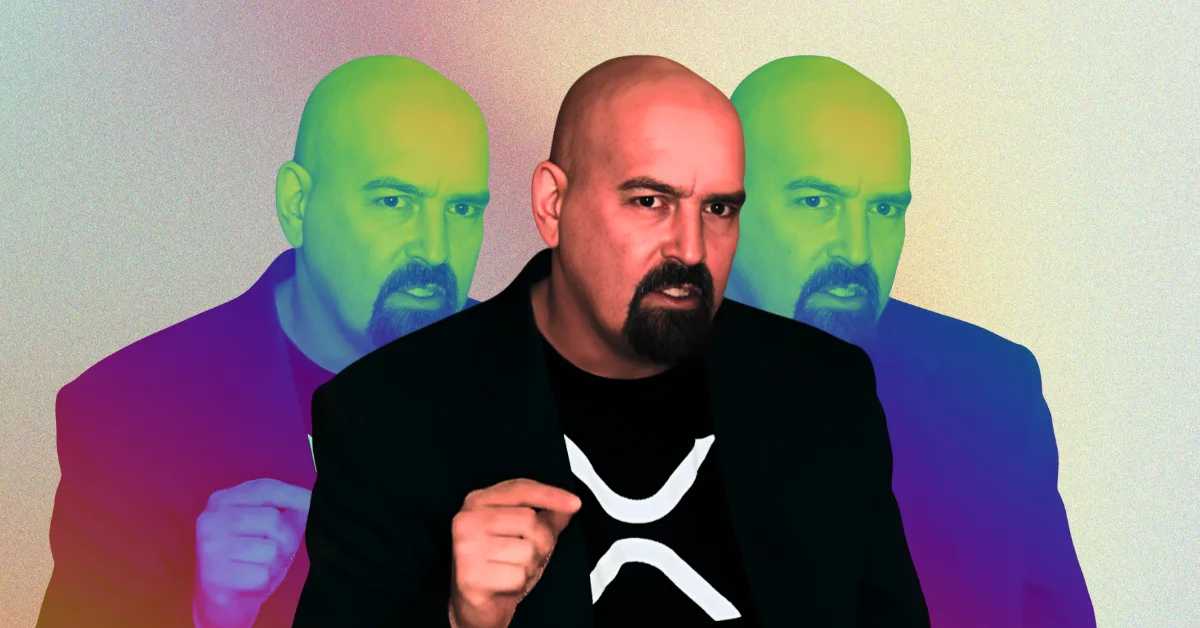The Crypto Crucible: John Deaton, Ripple, and the Battle for Banking Legitimacy
Introduction: A David Versus Goliath Saga in the Digital Age
The cryptocurrency landscape is a battleground where innovation clashes with tradition, and few figures embody this struggle as vividly as John Deaton. A lawyer by profession and a passionate advocate for XRP holders, Deaton has become a central figure in the ongoing debate over the future of digital assets. His recent criticisms of the American Bankers Association (ABA), clarifications on Ripple’s market position, and insights into cryptocurrency regulation and adoption paint a picture of a David versus Goliath saga unfolding in the digital age. This analysis explores Deaton’s role in this narrative, highlighting his impact on the crypto industry and his vision for its future.
The ABA’s Anti-Crypto Crusade: Deaton’s Sharp Rebuke
The American Bankers Association’s recent push to block bank licenses for cryptocurrency firms like Ripple and Circle has sparked intense debate. The ABA, along with other financial groups, argues that federal trust charters should be reserved for firms offering traditional fiduciary services. Deaton views this stance as an attempt to stifle innovation and protect the interests of legacy financial institutions.
Deaton’s criticism is rooted in the belief that the ABA’s position is anti-innovation and anti-crypto. He argues that restricting crypto firms from the banking system limits consumer choice and hinders technological advancements in finance. By denying these firms the opportunity to operate within a regulated banking framework, the ABA is ignoring the evolving nature of finance and the growing demand for digital asset services.
Moreover, Deaton contends that cryptocurrency firms like Ripple and Circle are providing fiduciary services by safeguarding digital assets and facilitating secure transactions. To exclude them from the banking system is to overlook their role in the modern financial ecosystem.
Clearing the Air: XRP, Circle, and the Misconceptions of Competition
Recent confusion about the relationship between XRP and Circle, the issuer of USDC, has led to speculation about competition between the two. Deaton quickly clarified that XRP is not in competition with Circle or USDC, emphasizing the importance of collaboration and interoperability in the crypto space.
His remarks highlight a crucial point: different cryptocurrencies serve different purposes and target different markets, but they are part of a larger ecosystem that benefits from cooperation. Deaton’s clarification also underscores Ripple’s independent market position. While Ripple holds a significant amount of XRP, this does not translate to control over the network. XRP’s decentralization ensures that Ripple’s influence is limited, and the network remains open and accessible to all.
Ripple’s Trajectory: Banking Ambitions and IPO Speculation
Ripple’s potential bid for Circle earlier this year sparked discussions about the company’s ambition to transform into a bank. Deaton suggested that such a merger could pave the way for Ripple to achieve this goal. A banking license would allow Ripple to offer a wider range of financial services, including deposit accounts, lending, and payment processing, while providing a more regulated and secure environment for its customers.
The possibility of an Initial Public Offering (IPO) has also been a subject of intense speculation. Deaton’s statements reinforcing Ripple’s independent market position have fueled this speculation, as an IPO could provide the company with significant capital to further expand its operations and pursue its strategic goals.
The Regulatory Labyrinth: SEC Battles and the Quest for Clarity
The regulatory landscape surrounding cryptocurrency remains complex and often confusing. Ripple’s protracted legal battle with the Securities and Exchange Commission (SEC) has been a defining moment for the company and the broader crypto industry.
Deaton has been a vocal critic of the SEC’s handling of the Ripple case, alleging unethical behavior by SEC lawyers and questioning the agency’s interpretation of securities laws. He argues that the SEC’s actions have harmed XRP holders and stifled innovation in the crypto space.
Despite the challenges posed by regulatory uncertainty, Deaton remains optimistic about the future of cryptocurrency regulation. He believes that clearer and more consistent regulations are essential for fostering innovation and protecting consumers. He advocates for a more collaborative approach between regulators and the crypto industry, arguing that dialogue and cooperation are necessary to develop effective and balanced regulations.
Beyond the Headlines: Deaton’s Advocacy for Retail Investors
While Deaton’s legal expertise and outspoken commentary on industry matters have earned him significant attention, his advocacy for retail investors is a core tenet of his work. His class-action effort on behalf of XRP holders during the SEC lawsuit demonstrated his commitment to protecting the interests of ordinary investors who may have been harmed by the SEC’s actions.
Deaton’s advocacy extends beyond legal representation. He actively educates and informs retail investors about the risks and opportunities associated with cryptocurrency, empowering them to make informed decisions. He challenges the narrative that cryptocurrency is solely the domain of institutional investors and wealthy elites, arguing that it has the potential to democratize finance and empower individuals from all backgrounds.
Conclusion: A Champion for Crypto’s Future
John Deaton’s unwavering advocacy for XRP holders, his sharp critiques of regulatory overreach, and his commitment to educating the public have solidified his position as a key figure in the cryptocurrency space. He stands as a vital counterweight to established financial power, advocating for innovation, transparency, and fairness. His actions reflect a deep understanding of both the legal complexities and the transformative potential of blockchain technology.
As the crypto industry continues to evolve and navigate the challenges of regulation and adoption, figures like Deaton will be crucial in shaping its future. He is more than just a lawyer; he is a champion for a more decentralized, equitable, and innovative financial world. He is a voice crying out in the crypto wilderness, urging the industry forward, challenging the status quo, and fighting for a future where digital assets are not just a niche investment but a fundamental part of the global financial landscape. He is, in essence, a defender of the digital frontier.

